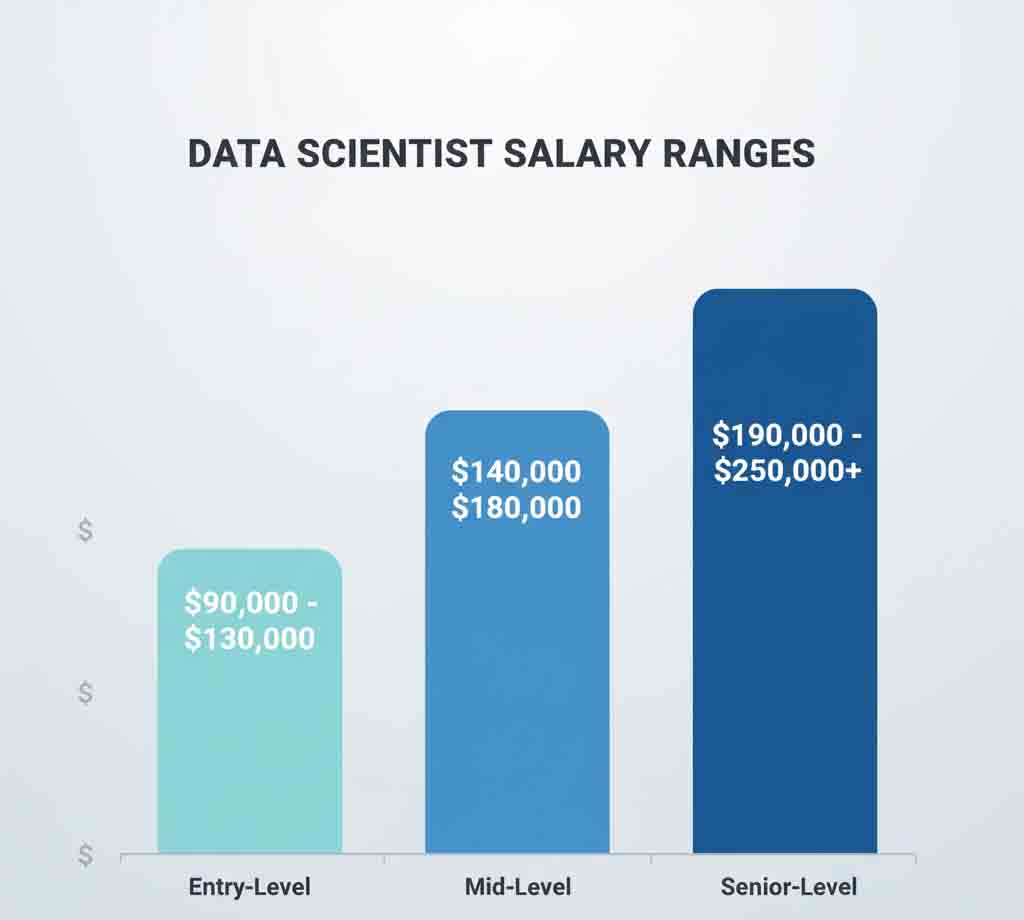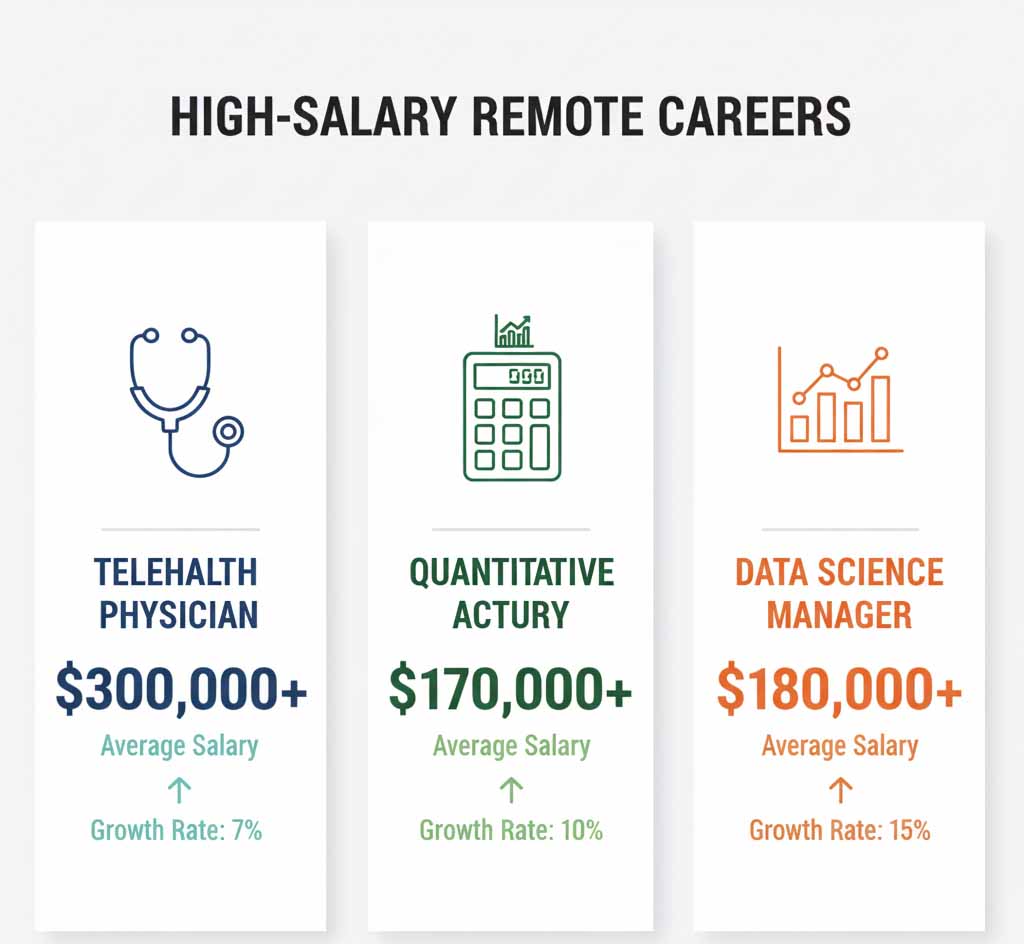🔍 Salary Ranges: Entry-Level to Senior
The following table outlines typical salary ranges for Data Scientists in the U.S. market at different career stages. Please note that these are approximate figures and can vary based on the specific factors discussed later.
| Experience Level | Typical Title(s) | Estimated Annual Salary (USD) | Key Characteristics |
|---|---|---|---|
| Entry-Level | Junior Data Scientist, Data Analyst | $70,000 – $95,000 | 0-2 years of experience; focuses on data cleaning, basic analysis, and supporting senior team members. |
| Mid-Level | Data Scientist, Senior Data Scientist | $95,000 – $130,000 | 3-7 years of experience; manages own projects, builds models, and may mentor junior staff. |
| Senior-Level | Lead Data Scientist, Principal DS, Manager | $130,000 – $180,000+ | 8+ years of experience; sets technical direction, leads projects and teams, and interfaces with senior leadership. |
Data Source and Context: The U.S. Bureau of Labor Statistics does not break down salaries specifically for “Data Scientist” by experience level. The figures above are market estimates consistent with the broader trend that employees with more experience command higher salaries. For context, in the U.S., higher education levels, which often correlate with seniority, lead to significantly higher earnings. In 2024, the median weekly earnings for someone with a master’s degree were about 80% higher than for someone with only a high school diploma.
📍 Key Factors That Impact Your Data Scientist Salary
Your compensation is influenced by much more than just your experience. Here are the other critical factors:
-
🌍 Location and Geography: Geographic location is one of the most significant influencers of salary.
-
United States: Salaries are typically highest in major tech hubs like San Francisco, New York, and Seattle due to high demand and a high cost of living. For example, tech salaries in a city like San Francisco can be 40% higher than in other parts of the country-2.
-
China: According to China’s National Bureau of Statistics, there are also pronounced regional disparities. The income gap between the highest and lowest-paid positions is widest in the eastern region.
-
-
🏢 Industry and Company Size: The industry you work in dramatically affects your earning potential.
-
High-Paying Sectors: Finance and technology sectors are known for offering top-tier compensation. For instance, in the U.S., the “Investment Banking and Securities Intermediation” industry had an average weekly earnings figure of $2,880.50 in May 2024, which is one of the highest across all sectors.
-
Company Size: Larger enterprises generally have more resources and offer higher salaries and more structured bonus plans compared to small and medium-sized businesses.
-
-
📊 Bonus Structures and Benefits
-
Performance Bonuses: Many tech and finance companies offer annual performance bonuses, which can range from 5-15% of base salary for individual contributors and much higher for leadership roles.
-
Equity Compensation: Stock options or Restricted Stock Units (RSUs) are a common and valuable part of compensation packages in the tech industry, particularly for mid-level and senior roles.
-
Benefits: Comprehensive benefits like premium health insurance, retirement plans with company matching, and generous paid time off also form a crucial part of the total compensation package.
-
💡 Actionable Tips for Your Salary Negotiation
-
Know Your Value: Use data from this guide and sites like Glassdoor to understand the market rate for your skills, experience, and location before interviews or raise discussions.
-
Consider the Total Package: Look beyond the base salary. A slightly lower base might be offset by valuable equity, a significant bonus, or superior benefits-2.
-
Highlight In-Demand Skills: Proficiency in specific technologies like Python, TensorFlow, and cloud platforms, as well as soft skills like communication and project management, can significantly increase your market value.


